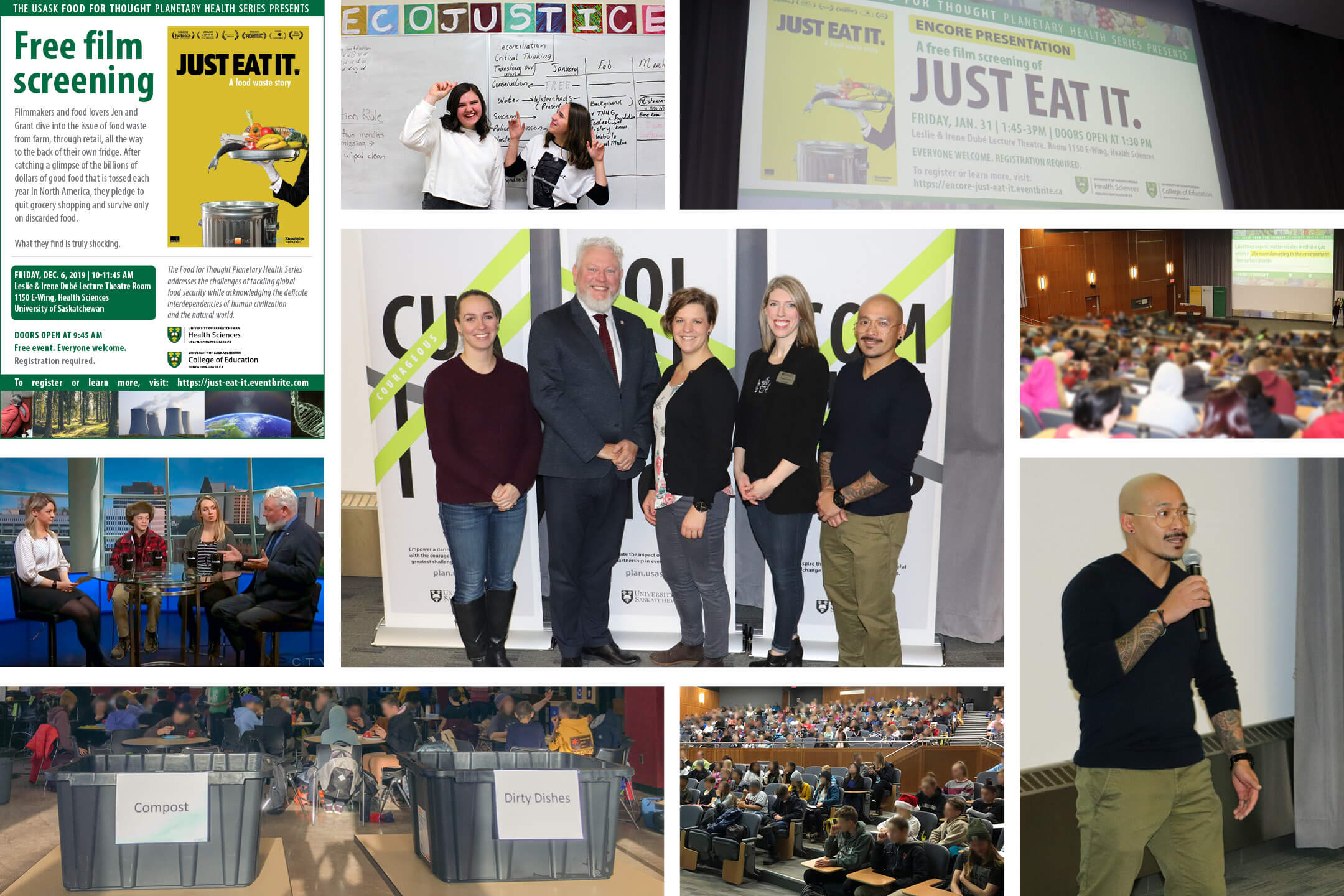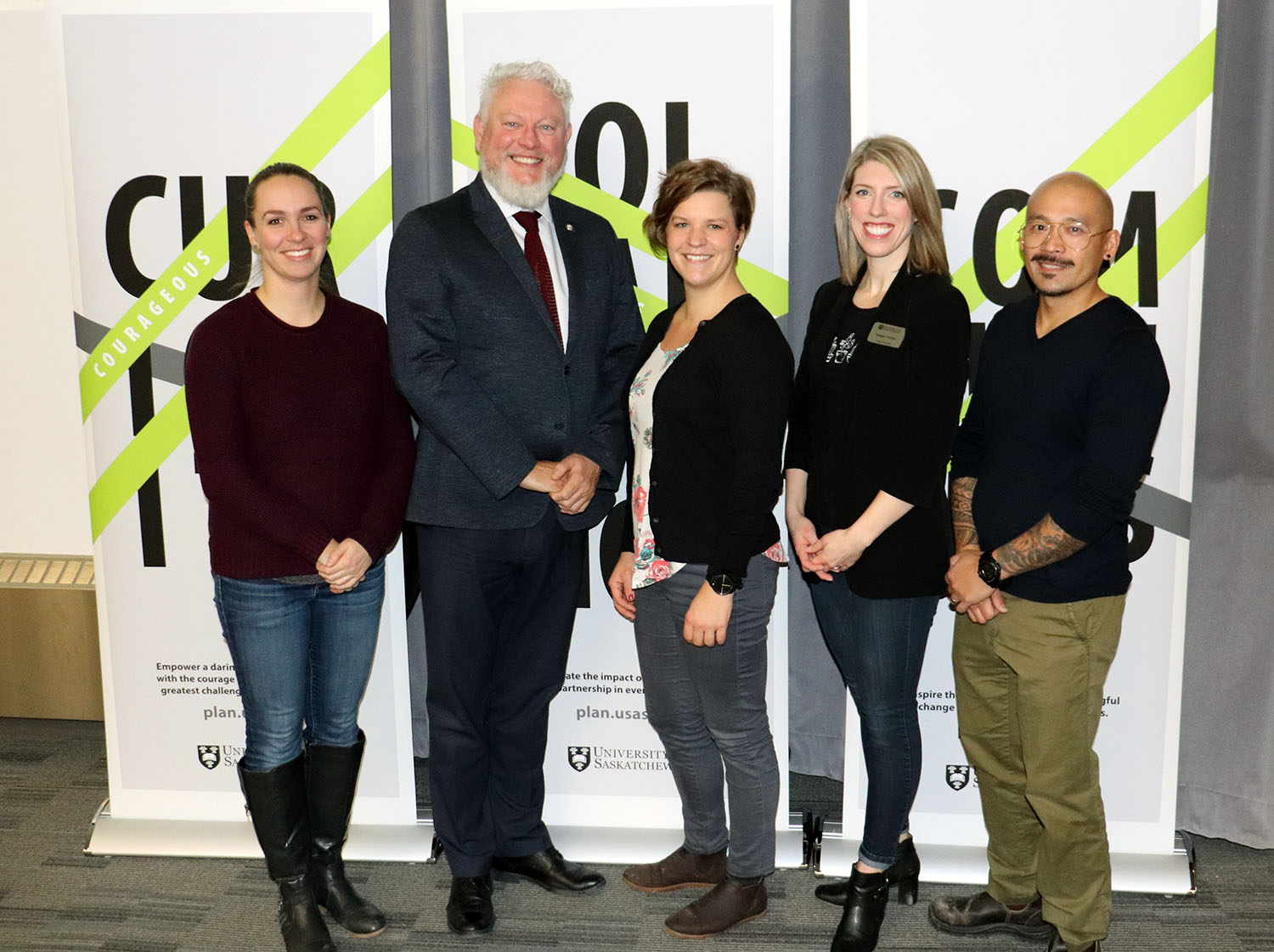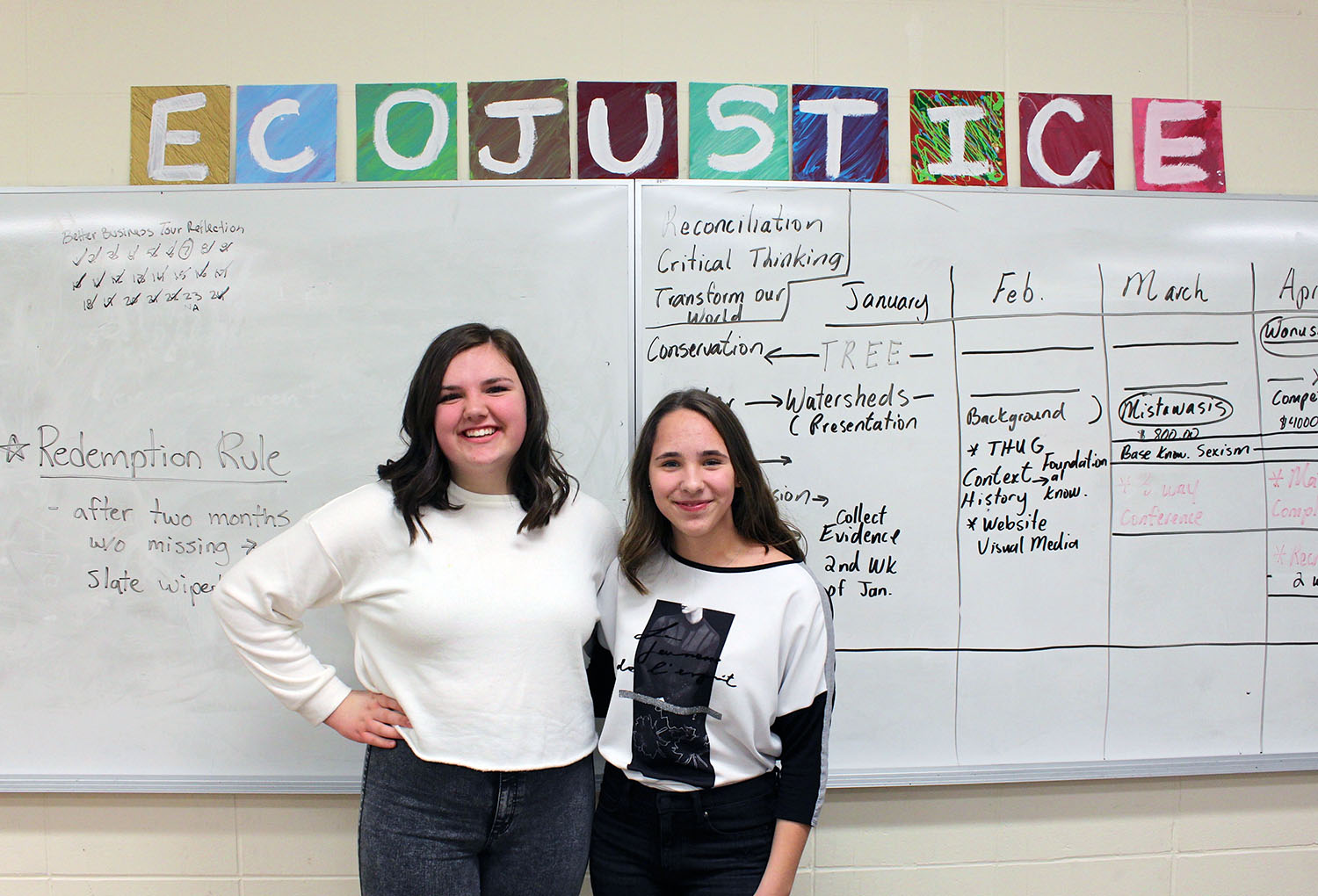
Health Sciences "Just Eat It" screening sparks discussion on food waste
In a unique collaboration between the University of Saskatchewan (USask) Health Sciences and the College of Education, nearly 400 local grade 7 and 8 students joined members of the public on Dec. 6 to see a free screening of "Just Eat It," a documentary about food waste.
By Naomi HansenThe sold-out screening was part of the Health Sciences’ Food for Thought Planetary Health Series, a series of events that addresses the growing challenges of global food security. Food waste is a crucial part of that story, as the National Zero Waste Council reports the average Canadian household wastes 140 kilograms of food annually, equivalent to $1,100. Of that number, 63 per cent of the food discarded could have been eaten.
“The amount of food we’re wasting is unsupportable in a society where other people are going without,” said Dr. Steven M. Jones (PhD), associate provost, health. “It can have a significant environmental cost, through production, transportation, and even the creation of unnecessary methane when discarded in landfills. The Health Sciences is interested in the long-term health of the people in the province and globally, and they can only be healthy if they’re living in a sustainable environment.”

Following the public screening, students took part in a forum on how to tackle food waste in daily life, hosted by the grade 8 environmental program EcoJustice, housed out of St. Frances Nēhiyaw Bilingual School and the College of Education.
Melchior Sysing, the facilitator for EcoJustice, says he hopes the documentary will inspire students to think critically.
“Living in a first world country, we often just consume without understanding the global impact. I hope students can start to question what they take for granted each day. It’s about saying, ‘Hey, can I do something small?’ And if we do enough of it, these small actions lead to a greater impact.”

The afternoon forum was inspired by the Youth Climate Action Forum held in October, which looked at youth leadership initiatives for climate change in Saskatoon.
EcoJustice student Aleksandra Zatorska says that one of the first steps is building awareness.
“The documentary was so powerful and it’s crazy to think how much food is getting wasted while there’s people who don’t have any,” she said. “A big part is that it’s a habit; people throw things out unconsciously or go and buy more when they have food in their fridge.”
Classmate Ava Visentini agrees, and says it’s important to remember this documentary came out in 2014.
“I think it’s good that we’re still working on this issue and trying our hardest to help everyone understand more. It’s hard because sometimes people aren’t open to making that change because it’s a lot of work,” she said.
Zatorska added, “It may be challenging for some, but it’s a good change.”
Jones notes that intersection of education and health is key for addressing this challenge.
“Education is one of the social determinants of health and I think there needs to be good links between Education and the Health Sciences if we’re going to develop a society with better health equity,” he said. “Talking to young people has a much farther reach and gives them a sense of empowerment. This is something they can do to contribute.”
Sysing notes that working together collectively is important to solving the problem.
“It’s harder to address these issues in silos. I think we need to work collectively because we’re always going to be intersecting at some point. So it’s good to have these conversations and I’m hopeful this can be a catalyst for creating more action and collaboration.”
Due to popularity, the Health Sciences is hosting a second screening of "Just Eat It" on Jan. 31 at 1:45 p.m. For more information on the "Just Eat It" encore presentation and the Food For Thought Planetary Health Series presented by the University of Saskatchewan Health Sciences, visit https://healthsciences.usask.ca/planetary-health/the-usask-food-for-thought-planetary-health-series.php
For more information about food waste in Canada, visit https://lovefoodhatewaste.ca/about/food-waste/

